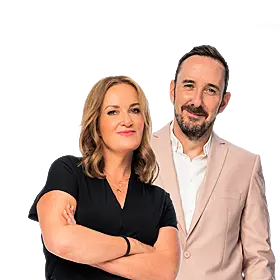In 1984 Iain Banks first novel, ‘The Wasp Factory’, was published. This dark and bizarre tale tells of the violent coming of age of Frank Cauldhame, a teenager on the cusp of adulthood. Set on a remote Scottish island and adorned with shamanistic rituals this novel caught the public attention and became a cult classic. This book was the start of an amazing career. Over the next 29 years Banks firmly established himself as one of Scotland’s greatest authors with the publication of 26 more novels.
Though ‘The Wasp Factory’ had started his career Banks had been writing science-fiction for years before; he had only turned to more conventional fiction when these early works failed to find a publisher. In 1987, after three more successful novels, Banks had his first work of science-fiction published. ‘Consider Phlebas’ started Bank’s sci-fi career with a bang and began his highly acclaimed Culture series.
Like many before him Banks saw sci-fi’s potential as a tool for cultural, social, and political commentary. His works, especially the Culture series, often reflected on moral questions and the potential ramifications of society’s behaviour. A study of Banks’ works offers some insight into his own political and moral views. Though he continued to write traditional fiction, with great success, Banks made it clear that science-fiction was his preferred genre, possibly because of its potential as a platform for social commentary.
 Part of the cover of 'The Wasp Factory' by Simon and Schuster
Part of the cover of 'The Wasp Factory' by Simon and Schuster
As the internet developed Banks embraced it as a social platform and a way to engage with his dedicated fan base. Over time his own website became a haven for Banks’ enthusiasts and a portal through which the author and his fans could communicate. On April 3rd 2013 Banks announced through the website that he had been diagnosed with terminal cancer. The publication of his last novel, ‘The Quarry’, was brought forward while Banks continued to communicate and interact with his fans.
Banks had married his long-term partner that March after asking her to ‘do [him] the honour of becoming [his] widow’. Iain Banks died on June 9th 2013, eleven days later ‘The Quarry’ was published in the UK. His passing was marked across the literary world, with many remarking that one of the greatest Scottish authors and science-fiction writers of the 20th and 21st centuries had been lost. Since his death an asteroid has been named in Banks’ honour while Elon Musk named two of SpaceX’s spaceport drone ships after ships in the novel ‘The Player of Games’.
Susan takes a look at the life and writings of Iain Banks with Professor Nick Daly and science-fiction author Paul Kincaid. Join 'Talking Books' as we delve into the worlds Banks created and the impact he had on the world. Susan also talks with Banks’ long-time friend and fellow author Ken MacLeod about their time together and the upcoming collection of their poetry, ‘Poems’. What was Iain Banks like? And what lessons can we learn from his life and writings?
 'Abraham Sacrificing Isaac' by Laurent de La Hyre, 1650
'Abraham Sacrificing Isaac' by Laurent de La Hyre, 1650
In the second part of the show Susan takes a look at ‘The Ethics of Everyday Life’ with author and philosopher Michael Banner. A professor of moral and social theology and Dean of Chapel for Trinity College Cambridge, Michael has spent his life teaching and studying the moral quandaries and pitfalls of modern life. This has seen him engage with issues of ethical thinking across the public and private sector including taking part in the Ministry of Defence's Advisory Committee on Less Lethal Weapons.
In his latest book, ‘The Ethics of Everyday Life’, Michael looks at moral theology’s role in modern life. As our understanding of how man, the earth, and the universe work grows we are faced with new ethical questions, while still struggling with those passed down through history. As we continue to struggle with the philosophical quandary of what it means to be human we must also deal with the controversies surrounding IVF, euthanasia, abortion, and the medical uses of bodies. In this book Michael looks to bring Christian thought to bear on these issues and show how ancient moral theologies can still be brought to bear on how we deal with the ethical dilemmas faced in our everyday lives.
Join Susan as she talks with Michael about ‘The Ethics of Everyday life’ and how Christian morality can help us to navigate the ever changing world. As our lives grow ever longer how should we face into our twilight years and care for our elders? What is the role of family in the modern world? And how should we raise our children for the future?









